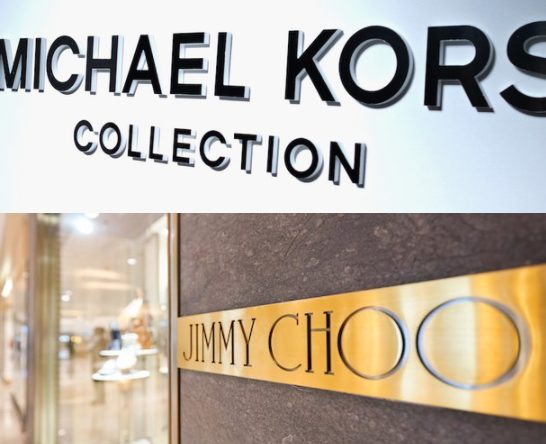Luxury fashion house Michael Kors has acquired luxury footwear and accessories brand Jimmy Choo for $1.17 billion as it seeks to bounce back from declining traffic and sales.
Michael Kors and many other upscale luxury brands such have faced plummeting sales and minimal profits as consumers spurn these retailers for less expensive, more accessible options. The handbags brand suffered Q4 comparable sales declines of 13.6% in May, and reported that it anticipates closing 100 to 125 of its full-price retail stores over the next two years to save $120 million. In addition to slowing sales, Michael Kors has felt pressure from chief handbag rival Coach after it acquired Kate Spade for $2.4 billion in May.
Jimmy Choo has been one of the rare luxury success stories in recent years, increasing revenue 14.5% to $495 million and boosting annual earnings 15.7% in 2017. The brand has built this success on $750 sandals and $895 boots, signaling that Michael Kors still believes attracting the wealthiest customers is the best way to facilitate its turnaround strategy.
“This is a very clean acquisition,” said Pete Killian, Principal of The Cambridge Group in an interview with Retail TouchPoints. “They overlap a little bit in certain categories, but their brands are very different. Jimmy Choo is a higher tier than Michael Kors, and has a much bigger presence overseas…so from that perspective, it makes a ton of sense.”
But Killian did note that the transaction doesn’t necessarily take its biggest challenges head on: these headwinds include weakness in traffic, weakness in category performance and overall brand relevance.
More Acquisitions To Come?
This deal marks Michael Kors’ first acquisition, but CEO John Idol indicated in an interview with CNBC that it wouldn’t be the company’s last. Idol reiterated that Michael Kors is focused on forming a “luxury group,” a strategic move with the goal of returning to growth by 2018. Idol also told CNBC that Michael Kors projects that total footwear revenues will grow from 11% of sales to 17%.
“This ‘luxury group’ addresses the necessity for Michael Kors — relevance in an age where Amazon is growing leaps and bounds,” Killian said. “They’re going to be 20% of apparel sales by 2020. In that world, and with the news of Nike having to sell through Amazon, everybody is taking a step back and asking, ‘Can we go it alone? If Nike can’t maintain a direct channel to consumers without going through Amazon and controlling our destiny, could we do that?’ I think everybody is collectively saying, ‘No, we can’t.'”
Killian noted that he anticipates that similar retailers will follow the lead of Michael Kors and Jimmy Choo in building formal or loose alliances, because they will have to scale to become unavoidable gateways to valuable consumers.
Michael Kors said it expected to open new Jimmy Choo retail stores and expand its fashion offerings as part of the acquisition. The fashion house also plans to develop Jimmy Choo’s e-Commerce presence. Michael Kors also expects to gain additional benefits from the acquisition, including:
-
The diversification of its product portfolio;
-
Greater positioning in the growing luxury footwear segment;
-
Further expansion in the luxury accessories market; and
-
Greater exposure to global markets, particularly the Asian market.
Jimmy Choo Retains Management Team
Pierre Denis will continue in his role as CEO of Jimmy Choo, as both companies will continue to operate separately. The rest of the brand’s management team, including Creative Director Sandra Choi, will remain in place.
Jimmy Choo initially put itself up for sale in April after majority owner JAB Holdings revealed its intent to sell its stake in luxury businesses to focus more on its core of food and coffee investments. Under the direction of Michael Kors, Jimmy Choo projects its annual sales to reach $1 billion.
The transaction has been approved by the Boards of Directors of both Michael Kors and Jimmy Choo.













